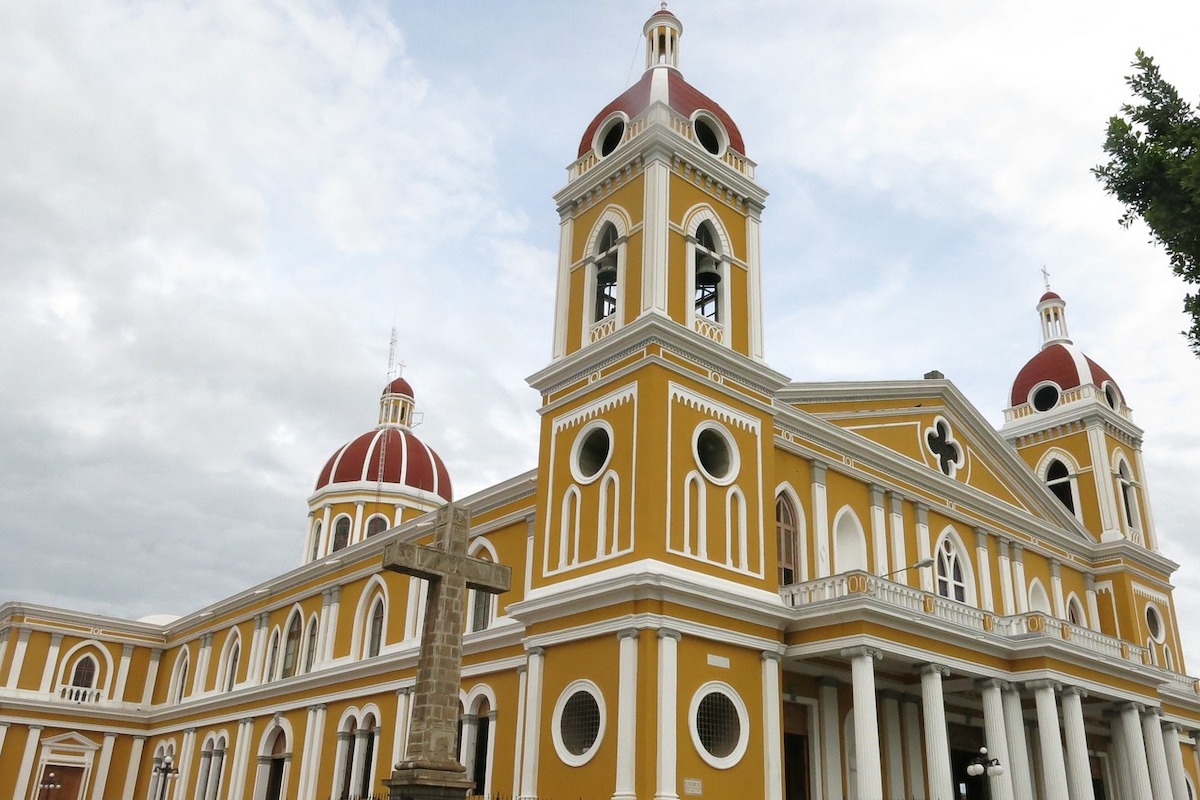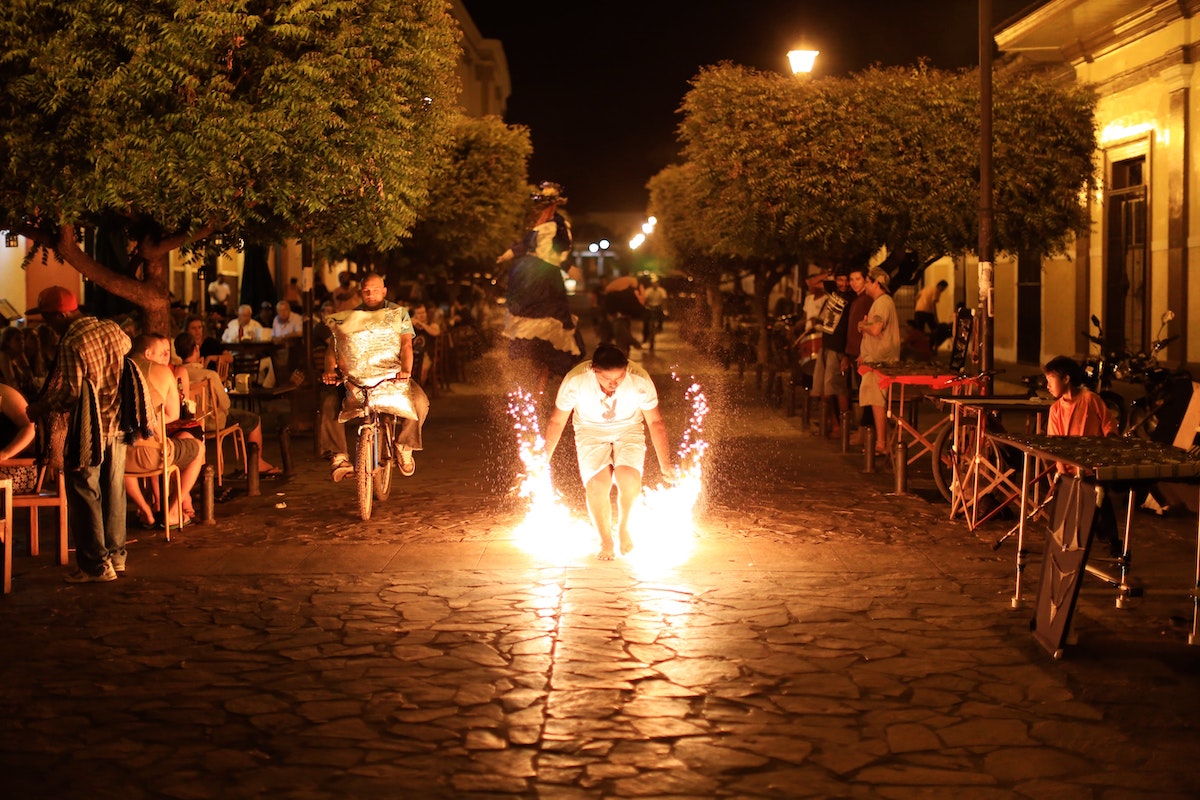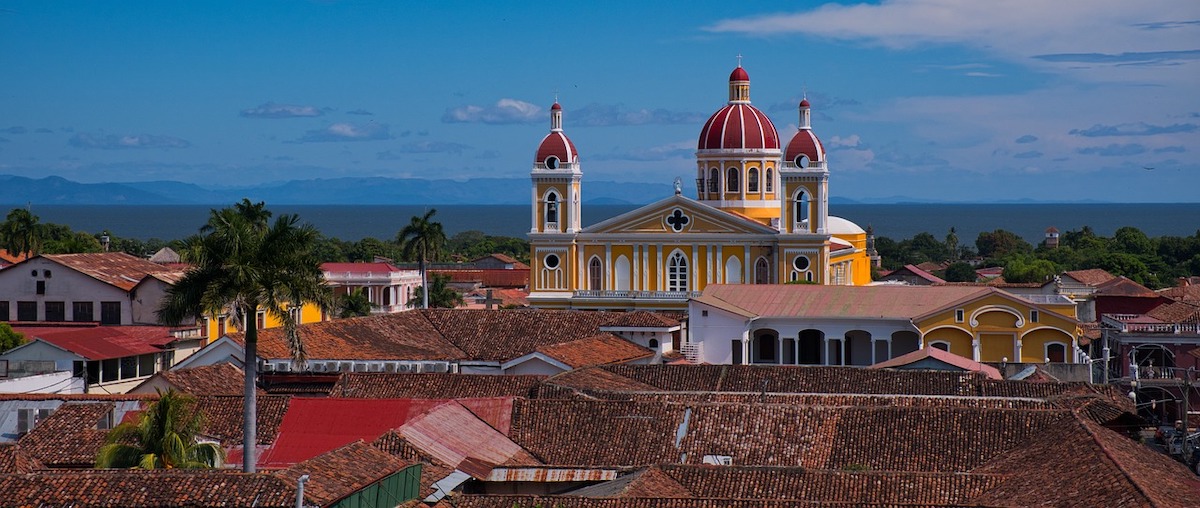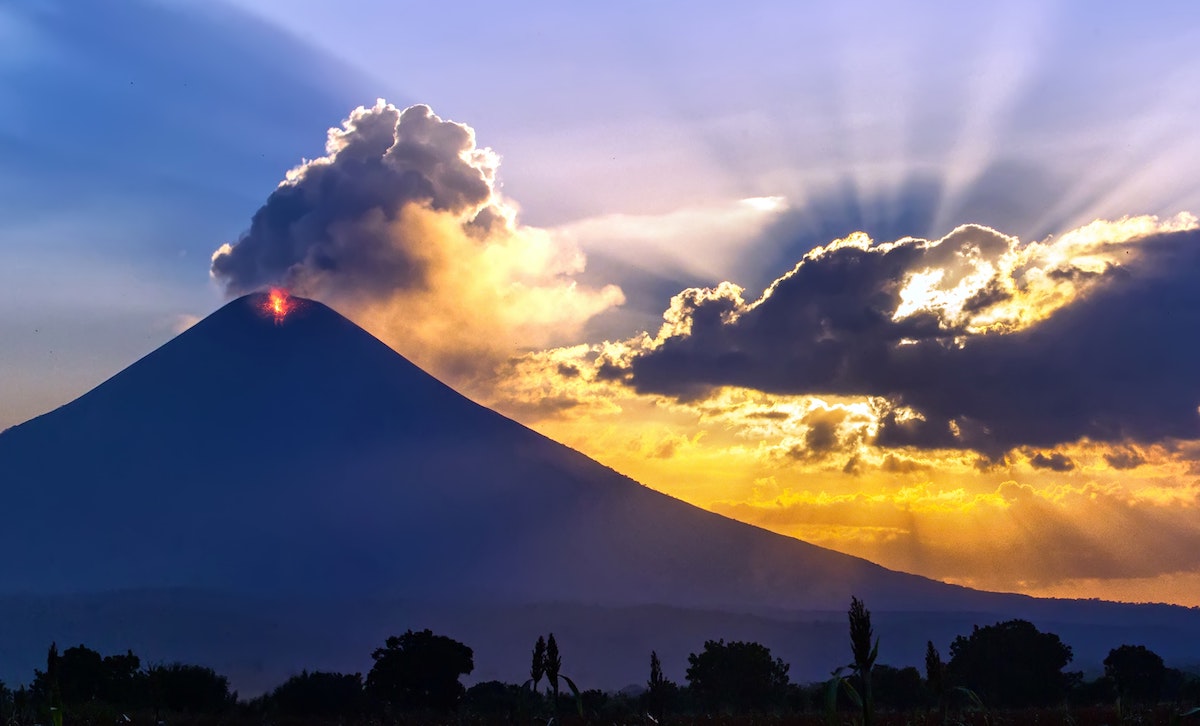
Moving to Granada, Nicaragua as an Expat or Digital Nomad: Cost of Living, Housing & More
By: Heather Keys
Skip to Section
Article Summary
Thinking about moving abroad? Granada, Nicaragua might just hit all the right notes: low cost of living, welcoming community, and a relaxed, charming lifestyle. This guide gives you the rundown on what to expect when relocating there as an expat.
This article walks through the essentials of life in Granada, Nicaragua, including housing costs, visa options, transportation, safety tips, and more. Whether you’re interested in buying property, working remotely, or simply enjoying a slower pace of life in a colorful colonial city, Granada offers a budget-friendly, experience-rich option for expats looking for something new.
- Average monthly costs for expats range from $1,200 to $2,000 depending on lifestyle.
- Private healthcare is affordable, widely used by expats, and often available in English.
- Visa options include tourist extensions, fixed income and retirement visas, and temporary residency for remote workers.
- Expats enjoy walkable neighborhoods, low local transit costs, and easy access to nature and adventure.
- Popular day trips include volcanic hikes, crater lake swims, boat tours, and nearby artisan markets.
Granada is a charming colonial city located in the western part of Nicaragua, on the shores of Lake Nicaragua. Founded in 1524 by Spanish conquistadors, Granada is a popular tourist destination for its well-preserved Spanish colonial architecture, markets, and views of the nearby Mombacho Volcano.
Expats are drawn to Granada’s relatively low cost of living, friendly community, and laid-back lifestyle. The city offers a good infrastructure; a wide variety of restaurants, bars, and cafes; and tons of activities for people interested in culture, exploration, and the outdoors. The proximity to the Pacific coast and the popular cities of Masaya, Managua, and León make it easy to visit other parts of the country and discover Nicaragua’s natural beauty.
Let’s look at what expats can expect when moving to Granada, Nicaragua!
Cost of Living

Fire – Photo by Tyler Donaghy on Unsplash
The cost of living in Granada remains relatively affordable for expats from places like the US, the UK, and Canada. Necessities such as housing, food, transportation, and healthcare are generally less prohibitive than in other countries, making Granada an excellent option for expats on a budget.
Most expats report living comfortably on $1,500 to $2,000 per month, with some managing on as little as $1,200 for a single person.
Housing: According to Numbeo and recent expat reports, a one-bedroom apartment in the city center costs $400-$600 per month, while a three-bedroom apartment in that area would cost about $650-$800 per month. Outside of the city center, those numbers come down to about $300-$400 per month and $500-$600 per month, respectively.
You can purchase property from about $20,000 for a small fixer-upper to $200,000+ for a luxury home. Basic utilities cost about $50 per month, and you can expect to pay around $40 per month for internet access.
Food: You can get a meal at an inexpensive restaurant for $4-5, while a more upscale one would cost about $25 for two people. At the grocery store, you can get a gallon of milk, a loaf of bread, a pound of rice, a dozen eggs, a pound of chicken fillets, beans, and some fruits and vegetables for about $15.
Transportation: Taxi service costs about $2 to $2.50 depending on the time of day, while bus fare is less than a dollar. If you buy a car, gas costs about $4.50 per gallon.
Healthcare: Healthcare costs in Granada are lower than you’d see in the US and many other destinations. You should research your options and understand what medical providers can assist you with when moving here. We recommend that you get international medical insurance, particularly for long-term, larger, or unexpected issues that may arise.
Housing and Utilities
Vacation rentals are a very common and easy option to work with—check out sites like Airbnb and Vrbo to get an idea of what’s available.
If you’re staying longer-term in Granada, apartment rentals are a popular option for expats, with prices ranging from around $300 to $800+ per month for a furnished apartment, depending on where you’d like to live and how large the unit is. Unfurnished apartment rentals are also available at a lower cost starting at around $150 per month. You can also rent a house, which you’ll find outside the city center—this can be an excellent option for expats with families or who prefer more space and privacy.
If you’d like to buy property in Granada, prices range from $20,000 for a small fixer-upper to $200,000+ for a luxury property. It’s worth noting that purchasing property in Nicaragua can be complicated and time-consuming, and you should seek the help of a local real estate agent or a lawyer to navigate the legal process.
Related: Read our article about haunted house-sitting in Antigua!
Basic utilities cost about $50 per month, and you can expect to pay about $40 per month for internet access. You may find that power outages happen more frequently here than you’re used to elsewhere, particularly during the rainy season.
Transportation

Image by Lukáš Jančička from Pixabay
If you’re staying near the city center, you may only need to get around on foot most of the time—many of the city’s main attractions, shops, and restaurants are located in the historic center, which is pedestrian-friendly.
Public transportation in Granada is readily available and quite affordable. The bus service around the city and to other destinations beyond Granada is frequent and cheap—taxis can also get you where you need to go.
Biking is a viable option for getting around the city, and you can either buy or rent a bike, depending on your needs. You can also find bike trails and routes online for further exploration.
Healthcare
There are public and private healthcare options available in Granada, Nicaragua—private hospitals and clinics are usually well-equipped and have more up-to-date facilities and equipment, so these are usually the go-to for expats. As well, private healthcare providers in Granada are often more willing to work with expats and can sometimes provide services in English.
As noted above, healthcare costs in Granada are far more affordable than you’d find in the US—this is a major draw for expats. If you don’t speak Spanish, you can get international medical insurance that helps to cover the costs of a translator (especially important in public hospitals and clinics), as well as services in private practices.
Banking and Other Services
Bank hours in Granada are a bit limited and you’ll likely need to build in time to wait in long lines. There are ATMs all over, so you may find that using a mix of online banking and ATMs is the way to go.
Postal service can be slower than you’re used to as well, so be sure to use express mail services or courier for important documents.
Internet and wifi access in Granada is widely available. Many cafes, restaurants, and hotels offer wifi, and you can get wifi in your apartment or house (if it’s not already provided in, for example, an Airbnb or other furnished, short-term rental) for about $40 per month. Of course, the prices and the speed of the service can vary.
If you’re staying in Granada for a while, you may want to purchase a local SIM card for cell service.
Safety and Security
Safety and security are always important concerns for expats, and Granada is generally considered a safe place to live; the crime rate here is relatively low compared to other cities throughout Central America. As with any city, it’s important to be aware of potential risks—like pickpocketing or other petty crimes—and take appropriate precautions and be mindful of your surroundings.
The political situation in Nicaragua has been complicated in recent years, with protests and civil unrest erupting throughout the country. The US State Department continues to maintain a Level 3 travel advisory, recommending that travelers reconsider trips to this country due to arbitrary enforcement of laws, the risk of wrongful detention, and limited healthcare availability—in particular wrongful detention of people deemed to be in opposition to the rule of President Ortega. The situation in Granada has been relatively peaceful, though expats should stay informed and aware of any developments that could affect safety and security.
To stay safe and avoid trouble in Granada, expats can take some basic precautions. It’s a good idea to be aware of your surroundings, particularly in busy tourist areas and at night. Avoid carrying large amounts of cash or valuable items, and avoid walking alone at night in unfamiliar areas. Additionally, it’s a good idea to keep a low profile and avoid discussing sensitive political or social issues in public—this is especially important to note since political protests are ongoing, particularly in the capital.
Weather and Climate
Granada has a tropical climate; the city sits in a valley, which helps to keep temperatures moderate, but it can be hot and humid during the dry season.
Granada’s dry season runs from December to April, with temperatures averaging around 86°F during the day and dropping to around 68°F at night. During this time of year, there is little to no rainfall—it’s also the peak tourist season.
The rainy season lasts from May to November, averaging around 81°F during the day and dropping to around 72°F at night. During this time of year, the city sees most of its annual rainfall, with the heaviest rains in September and October.

Photo by ROBERTO ZUNIGA
Visa and Residency Options for Expats and Digital Nomads (Updated 2025)
While Nicaragua doesn’t have a specific digital nomad visa, there are several options for expats and remote workers:
Tourist Visa: Citizens of most countries, including the US, Canada, and EU member states, can enter Nicaragua without a visa for up to 90 days. Extensions are possible for another 90 days at immigration offices.
Rentista (Fixed Income) Visa: Requires a minimum monthly income of $750 from investments or rental properties, plus $150 per dependent. This is a popular option for those with passive income.
Pensionado (Retirement) Visa: For those 45 and older (or younger with stable income), requires only $600 per month in pension or social security income. This is one of the lowest retirement income requirements in the world.
Investor Residency: Requires a minimum investment of $30,000 in government-approved projects or businesses that create economic activity.
Temporary Residence: Valid for one year and renewable, suitable for those working remotely for foreign companies. After three years, you can apply for permanent residency.
Important notes:
- Nicaragua has a territorial tax system, meaning foreign-earned income is not taxed unless deposited into a local corporate account
- All documents from abroad must be translated and apostilled
- Health insurance is not mandatory but highly recommended
Fun Things to Do in and around Granada, Nicaragua
Let’s have a look at some things you can do as an expat living in this beautiful city!
Visit the Convent of San Francisco: This beautiful 16th-century building is one of Granada’s most important historical landmarks. Behind the impressive facade, you’ll find a gorgeous courtyard and a museum displaying religious artifacts, artwork, and even a scale model of the city.
Visit the fortress of La Polvora: Built in the 16th century, this fortress is a must-see historical site, and has a fantastic view of the city and Lake Nicaragua. It’s also a great spot to watch the sunset.
Visit the Granada Cathedral: Our Lady of the Assumption Cathedral is one of the most important religious landmarks in the city—come here to see its beautiful stained glass windows, and spend some time in the plaza just outside.
Visit the Museum of Legends and Traditions: Going further afield to León, the museum features a collection of artifacts and exhibits related to local culture, history, and legends.
Explore the Central Park (Parque Central): The central park is the heart of the city, and is a great way to get a feel for the local culture. You’ll find street vendors, performers, and musicians, and it’s a beautiful spot to relax and people-watch.
Go on a luxury retreat: Finding local luxury retreats is important if you want to truly unwind and relax, so when you’re doing your research, ensure that you are finding the resorts that offer it!
Take a walking tour of the historic district: Granada is home to many well-preserved colonial-era buildings, and a walking tour is a great way to explore the city’s rich history and architecture.
Visit the Laguna de Apoyo: This beautiful crater lake is an excellent place for a day trip or a weekend getaway, and offers plenty of activities like swimming, kayaking, and stand-up paddleboarding.
Visit the Masaya Volcano National Park: The Masaya Volcano National Park is just a short drive from Granada, and is home to two volcanoes and five craters. Come here to see the spectacular lava lake!
Go on a boat tour of the nearby Isletas: The Isletas de Granada are a group of 365 small islands on Lake Nicaragua, formed after the eruption of the Mombacho Volcano.
Take a day trip to the nearby towns of Masaya and Diriamba: Both are known for their vibrant markets and traditional crafts, and are a great way to get a feel for Nicaraguan culture beyond Granada.
Go on a nature and wildlife tour: The area around Granada is home to a wide variety of plants and animals, and taking a tour is a great way to explore the local flora and fauna.
Go on a coffee tour: Nicaragua is known for its delicious coffee, and taking a tour is a great way to learn more about the local industry and sample some of the best coffee in the country.
Take a cooking class: Granada has delicious local cuisine, and a cooking class is a great way to learn more about the local flavors and ingredients.
Take a Spanish language class: Granada is a great place to learn Spanish, and many language schools and classes are available in the city. Taking a class is a great way to immerse yourself in the culture and improve your language skills.
About the Author
Originally from Indiana, Heather believes every destination has a story worth telling and a reason to visit. With a deep love of adventure, history, and psychology, she shares travel trivia, tips, and inspiration to encourage you to explore the world with curiosity and optimism. Read her other articles on Frayed Passport here.Featured image by punkabillieblue from Pixabay
Information published on this website and across our networks can change over time. Stories and recommendations reflect the subjective opinions of our writers. You should consult multiple sources to ensure you have the most current, safe, and correct details for your own research and plans.
Frayed Passport is a participant in the Amazon Associates Program, an affiliate advertising program designed to provide a means for sites to earn advertising fees by advertising and linking to Amazon.com. We also may share links to other affiliates and sponsors in articles across our website.




